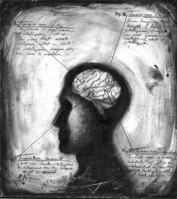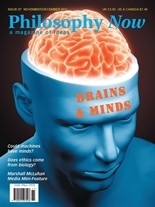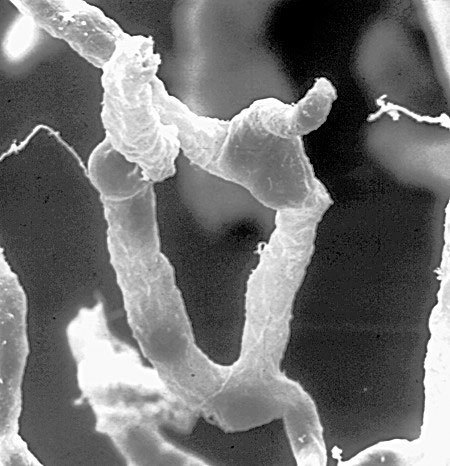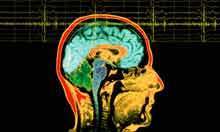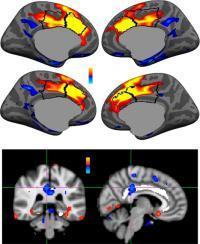Economics is at the start of a revolution that is traceable to an unexpected source: medical schools and their research facilities.
Get Started for FREE
Sign up with Facebook Sign up with X
I don't have a Facebook or a X account


 Your new post is loading... Your new post is loading...
 Your new post is loading... Your new post is loading...
Matthew Hurley was an undergraduate at Tufts when he asked a vital question: Why is the human brain equipped with a sense of humor?
In other words, neuroscience is now proving what many sales professionals have long suspected: that decision-making, even among top executives, takes place mostly at a "gut" level.
Traditional shamanism is neither exclusive nor inclusive. Such limits do not need to be placed. Drawing on the same neurological processes, both accomplish healing outcomes different ways.
Laura Weed takes us on a tour of the mind/brain controversy. In the twentieth century philosophy of mind became one of the central areas of philosophy in the English-speaking world, and so it remains. Questions such as the relationship between mind and brain, the nature of consciousness, and how we perceive the world, have come to be seen as crucial in understanding the world. These days, the predominant position in philosophy of mind aims at equating mental phenomena with operations of the brain, and explaining them all in scientific terms. Sometimes this project is called ‘cognitive science’, and it carries the implicit assumption that cognition occurs in computers as well as in human and animal brains, and can be studied equally well in each of these three forms.
What is this for? Well, first it’s a way to show how humans brains may encode numbers, but it also shows how our concepts of numbers may become more accurate over time (though we cannot yet measure this in humans). And it may be a good way to help model numerical learning disabilities in humans, looking at how their tuning curves develop. This is still theoretical, but it may help us to understand ideas of number.
Quite often, what makes us happy and what is actually good for us are directly at odds with each other. What worked for us evolutionarily over the millenia frequently becomes counter-productive in ...
Would not life be easy if everything happened as we anticipated? In reality, our brains are able to adapt to the unexpected using an inbuilt network that makes predictions about the world and monitors how those predictions turn out.
Skilled readers can recognize words at lightning fast speed when they read because the word has been placed in a visual dictionary of sorts, say Georgetown University Medical Center (GUMC) neuroscientists.
Deepa Sahasrabuddhe's comment November 24, 2011 11:21 PM
In his book `Incognito', David Eagleman tackles the question `Who is in charge here, really?' in a most lucid and interesting way. Brain chemistry plays a far greater role than we realise but can we press the `over ride' button. That is the bottomline.
People who can recall life’s events in detail have enlarged region linked to obsessive-compulsive disorder...
Some scientists are convinced that advances in brain science have overturned the idea of free will. They're wrong. |
Why does music make us feel? On the one hand, music is a purely abstract art form, devoid of language or explicit ideas. Via playalongjon
At this week's annual meeting of the Society for Neuroscience, panelists were quick to recognize that sex-difference research is easily abused and can justify sexism. That drew a sharp question from two female researchers in the audience who expressed concern that political correctness too often prevents researchers from asking purely scientific questions. If a few guidelines are kept in mind while pursuing research, sexism can be easily avoided.
A computer chip that mimics brain activity could help scientists advance research into artificial intelligence.
Solving a problem that requires creative insight prompts distinct changes in brain activities called the “Aha! moment".
fascinating hypothesis in the field of artificial intelligence is that the human brain implements a "general-purpose" learning algorithm. This may explain why humans can learn to do so many different things--ranging from tying shoelaces; to driving cars; to solving algebra problems.
In this project, neuroscientists are testing the hypothesis, "Is there a general-purpose learning algorithm?" Currently, the programmed computer already exhibits behavior very similar to what's observed in the biological brain when processing sight, sound or touch, suggesting that the researchers are on the right track toward a general-purpose learning algorithm.
Can it really be true that a quarter of Brits are bullied or beaten up at home or are mentally ill, or is this simply a case of social campaigners exaggerating how bad life is in order that they can continue to make headlines, make an impact, and get funding? I reckon it's the latter. Next time you see the "one in four" figure, be very sceptical – it's probably Dickensian-style doom-mongering disguised as social research, where the aim is to convince us, against the evidence of our own eyes and ears, that loads of the people we encounter everyday are basket cases in need of rescue.
To heal the brain, scientists are trying to poke through the shield that isolates it from the rest of the body. Visit Discover Magazine to read this article and other exclusive science and technology news stories.
The animation will help scientists to understand how the female brain conducts the symphony of activity that leads to an orgasm...
Scientists discover that the left side of the brain reacts more to immoral stimuli...
When a person thinks about naughty things, does one side of the brain get more exercised than the other? Eight scientists studied that question. Their report, Hemispheric Asymmetries During Processing of Immoral Stimuli, appears in the journal Frontiers in Evolutionary Neuroscience. The stated goal is to describe "the neural organisation of moral processing".
Moral reasoning involves a complex integration between affective and cognitive processes that gradually changes with age and can be viewed in dynamic transaction across the course of ontogenesis. The findings support the view that negative emotion alerts the individual to the moral salience of a situation by bringing discomfort and thus can serve as an antecedent to moral judgment."
Taken together, these results demonstrate that disruption of the social bond causes reduction of activity throughout the “reward” and “motivation” circuitry that underlies social behavior, as well as in "social recognition" areas.
These results highlight that a non-human primate model is invaluable for further understanding the neural mechanisms underpinning selective pair-bonds.
This research was funded by the Good Nature Institute, NIH RR00169 and HD053555.
(Medical Xpress) -- A key phenomenon studied by neuroscientists is the brain’s ability to recognize errors when they occur, link them to the associated behavior, and apply those errors in a way that modifies the behavior - the overall goal being to... |


